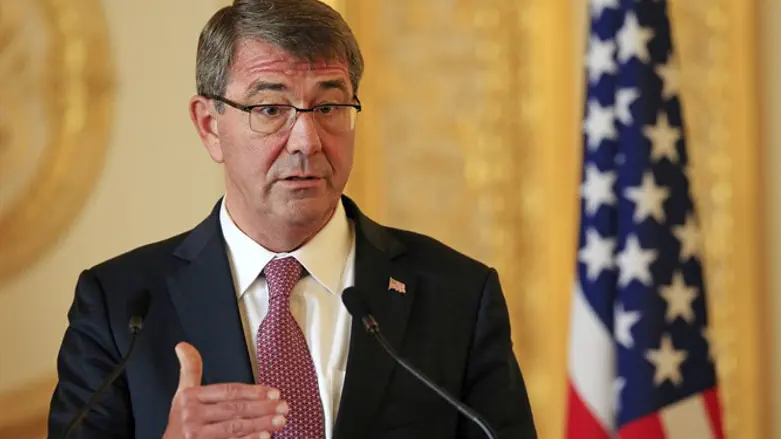
Pentagon chief Ashton Carter on Thursday threatened an "overwhelming" response if North Korea uses a nuclear weapon, AFP reported.
Earlier in the day, North Korea had conducted a failed test of a powerful medium-range missile that experts warn could be deployed as early as next year.
The test was the second within a week, as a similar test occurred – and failed – on Saturday.
South Korean and U.S. military monitors said the missile – believed to be an intermediate-range Musudan – exploded shortly after take-off at around 6:30 a.m. Pyongyang time (2200 GMT Wednesday).
"We strongly condemn last night's attempt, which even in failing, violated several UN Security Council resolutions," Carter said at a joint press conference with his South Korean counterpart, Han Min-Koo, according to AFP.
Carter went on to repeat a pledge he made alongside Secretary of State John Kerry on Wednesday, ahead of the most recent missile test.
"Make no mistake: Any attack on America or our allies will not only be defeated, but any use of nuclear weapons will be met with an overwhelming and effective response."
Musadan missiles have a theoretical range of anywhere between 2,500 and 4,000 kilometers (1,500 and 2,500 miles) and are capable of reaching Japan and Guam, according to the Center for Strategic and International Studies (CSIS). North Korea has carried out several missile and nuclear tests in recent months. Before Saturday’s failed experiment, the last such test had come on September 9.
The launches highlight the shortcomings of the Musudan, Han suggested, noting there was a "high possibility" North Korean leader Kim Jong-Un was at the site of the most recent launch.
"For political purposes, they're conducting these Musudan launches and through these failed tests, they've shown their limits," Han said according to translated remarks quoted by AFP.
The last Musudan test on Saturday was denounced by the UN Security Council, which is currently debating a fresh sanctions resolution against Pyongyang over its fifth nuclear test, carried out last month.
The missile has now been tested eight times this year, but only once successfully.
After Pyongyang carried out its fourth nuclear test in January, the Security Council adopted the toughest sanctions resolution to date, targeting North Korea's trade in minerals and tightening banking restrictions.
The ongoing negotiations on the new sanctions measure are focused on closing loopholes and zeroing in on North Korea's nuclear and ballistic missile technology industry, according to Security Council diplomats.
Amid the tensions in the Korean peninsula, South Korea has been negotiating with the U.S.to deploy the Terminal High Altitude Area Defense system (THAAD) to protect itself from its northern neighbor.
"Our missile defenses are necessary to protect our people. That's the purpose of THAAD and any other missile defenses that we develop or deploy together," Carter said on Thursday.
North Korea's military has in the past threatened a "physical response" if the United States and South Korea deploy the advanced missile defense system to the Korean peninsula.